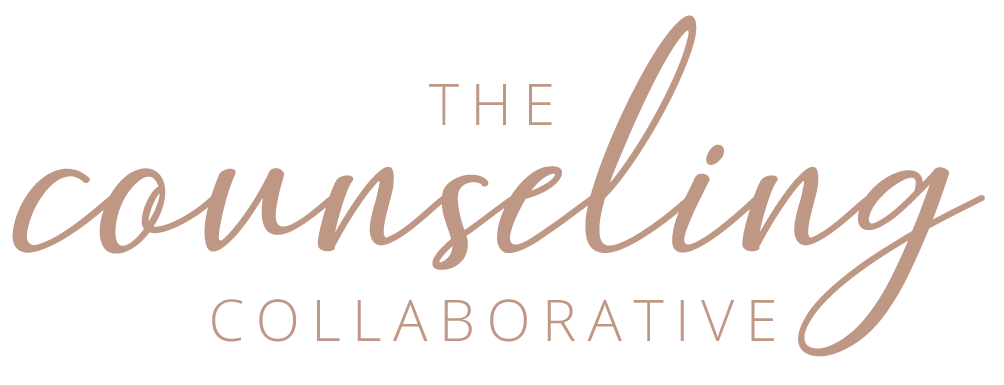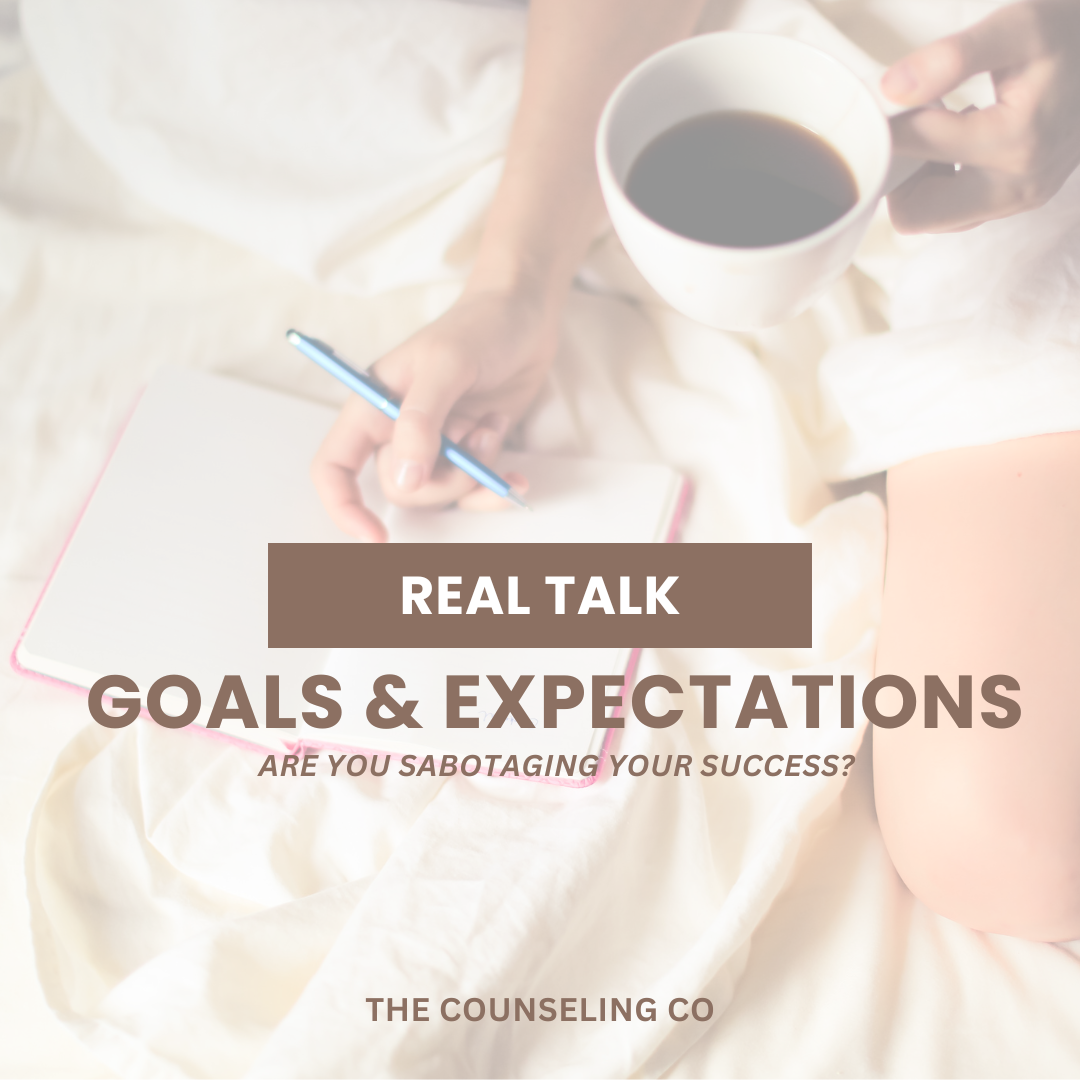
What is Actually the Problem: You or Your Expectations? How Appropriate Goal Setting Can Change Your Approach- and Outcome
Maybe you’re tired of me talking about appropriate goal setting, but I’m back to talk about it once again because it’s that important.
The act of goal setting is both the starting point and the breaking point. It can be the difference between what happens and what doesn’t so let’s talk about it again and add some more depth this time.
Goal setting is something we do both causally and loudly. We set mental agendas for the day, publicly post initiatives, whisper secret goals to our therapist, and write our dreams down in journals.
Goal setting is a very human experience. Sometimes it feels vulnerable to share, other times we need others to hold us accountable.
But what happens when the goals we set aren’t helping us—when they’re actually hurting us?
Let’s talk about the ways we might be working against ourselves.
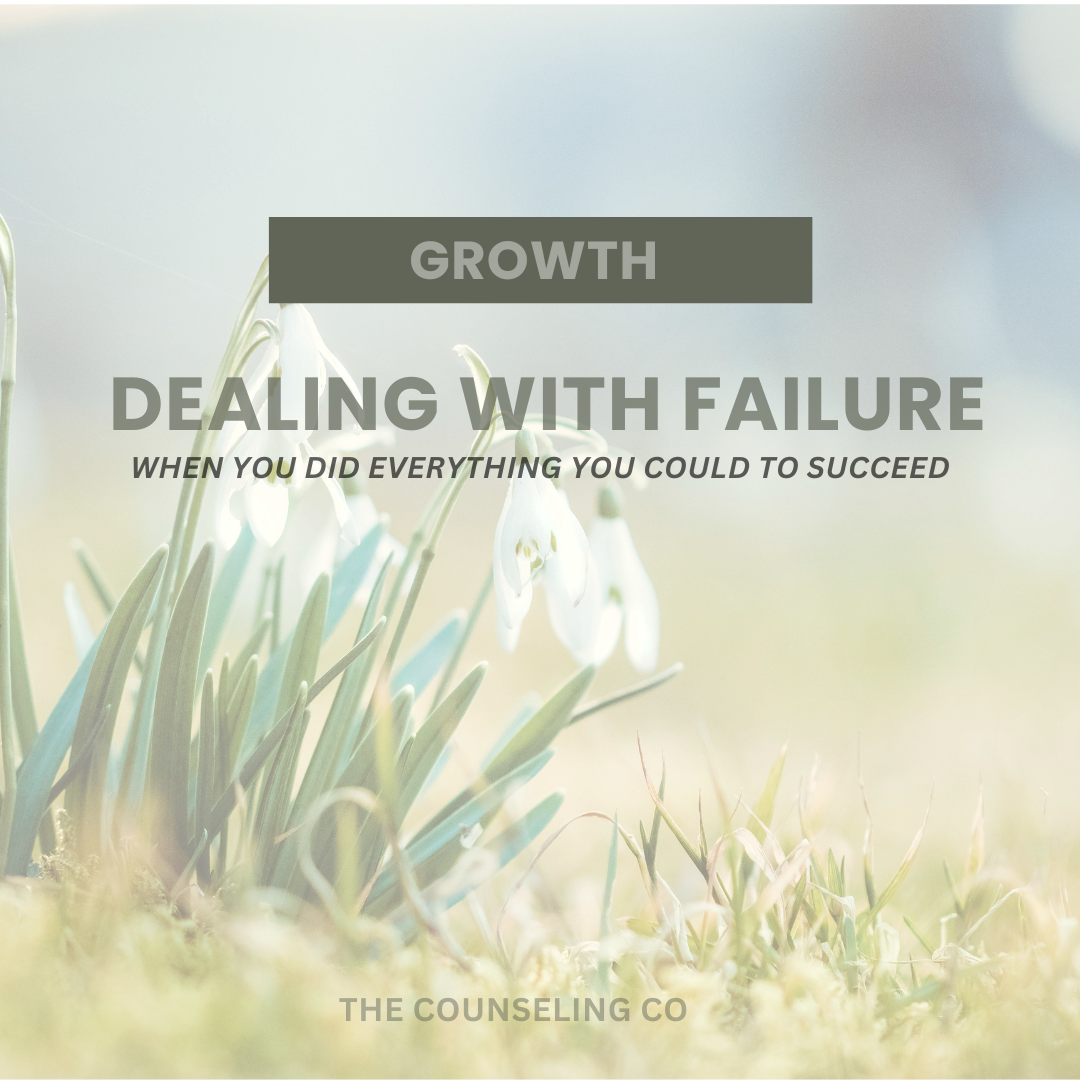
“I’ve done everything right and it’s still not enough!”
We live in a culture where the overarching message while growing up is to “work hard and you will be rewarded with what you want. Hard work gets you the outcomes you desire.” I have to admit that I love the sentiment behind these messages– we have to learn to work hard and understand that things don’t “just happen,” and that we are responsible for our own behaviors and actions. However, I am seeing more and more women talk about the crushing disappointment when they have worked hard, they have done “everything right,” and it’s still just not enough to get them where they want to be.
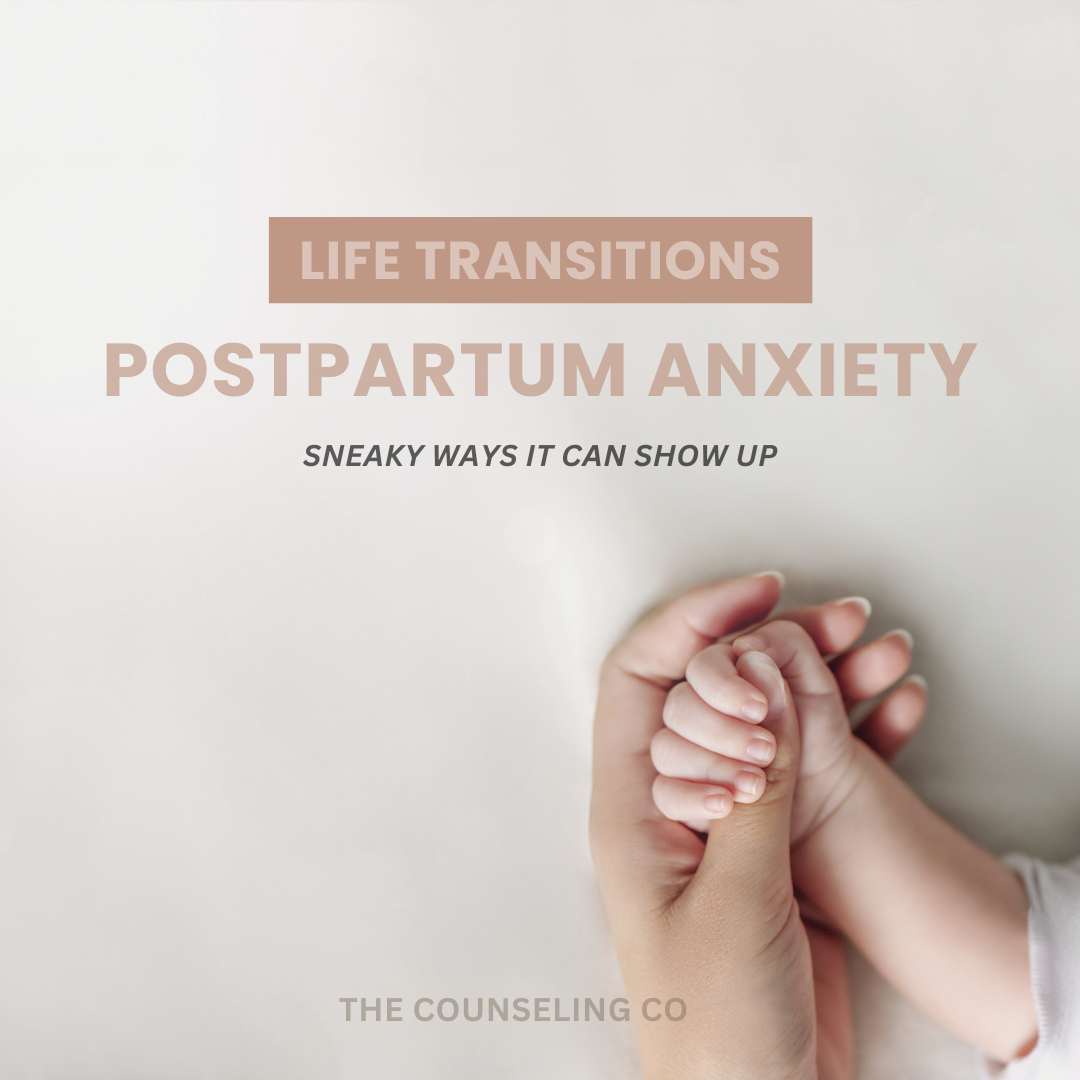
Postpartum Anxiety in Modern-Day Motherhood
Postpartum anxiety is one of the most common concerns of women who walk into my office. It is also one of my favorite things to address because there is so much room for growth and progress.
Sometimes, postpartum anxiety shows up with classic, textbook symptoms that are easily recognizable. Other times, it tends to be a little more sneaky and can go unrecognized or undiagnosed for this reason.
Anxiety manifests differently for every person. For some, it presents more in anxious thoughts, rumination, and excessive worry. For others, it presents physically in more body-based symptoms. Some women don’t even realize that what they’re feeling is anxiety until they are beyond it completely. Additionally, the screening measures you have probably filled out through your OB/GYN, hospital, or pediatrician’s office focus more on symptoms of postpartum depression as opposed to anxiety, so sometimes it slips through the cracks.
I wanted to take the opportunity to share a few “sneaky” ways that I see postpartum anxiety showing up in modern-day motherhood.
I want to preface this by saying that just because you may exhibit some of these behaviors, it does not necessarily mean you have postpartum anxiety. It is simply me sharing some specific areas and patterns that I see showing up.
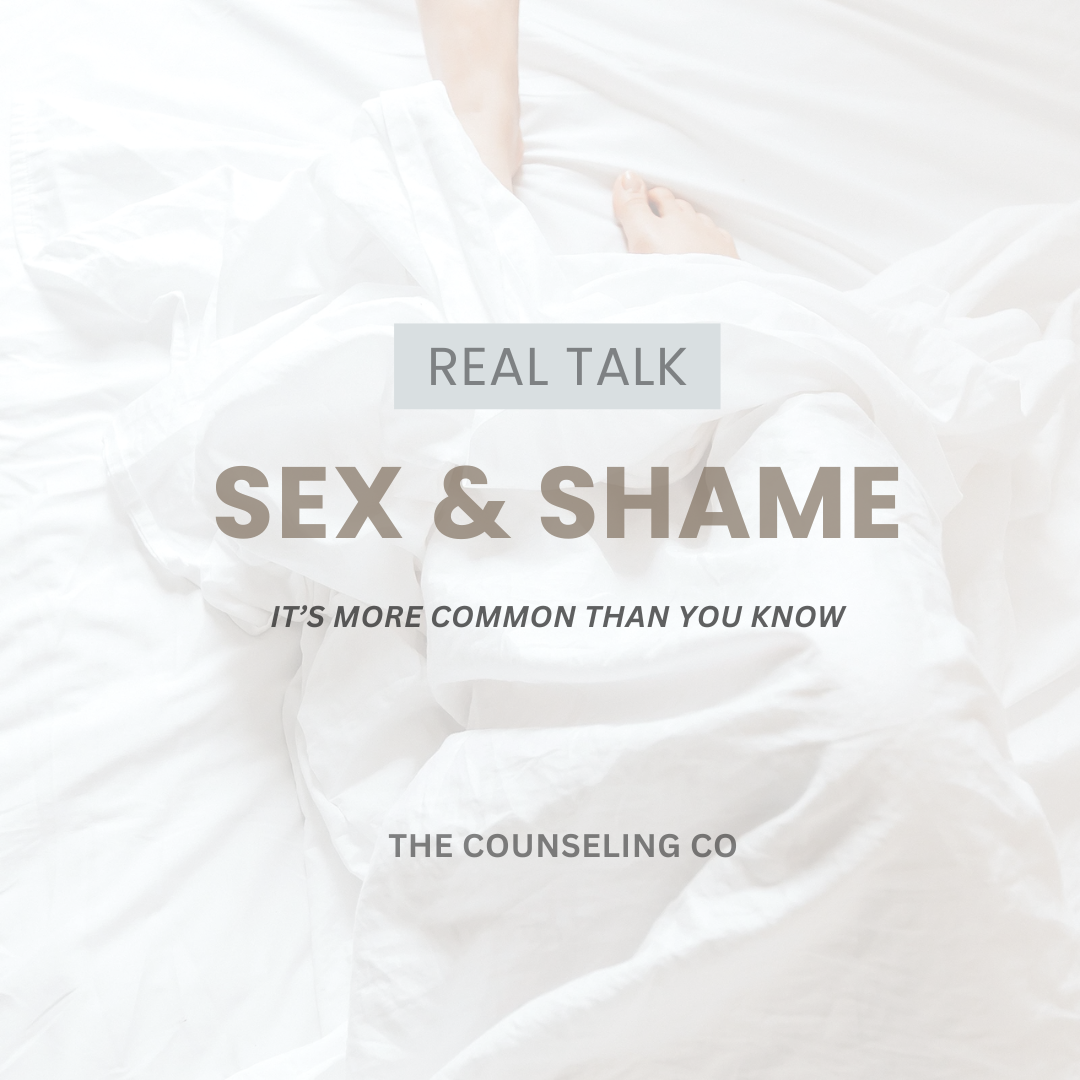
Real Talk: Sex & Shame
Sex. I’m hoping if you are reading this, I don’t need to use Merriam-Webster here. It’s something I discuss daily with my clients. It’s a topic that comes up, time and time again and it’s most often connected to shame. I see women who feel shameful because they want more sex, but their partner doesn’t. I see women who want no part in intimacy and are feeling pressure from their partners. Women come in angry, hurt, and resentful, quite often asking, “What’s wrong with me.” These women frequently shrink into a place of pain because the story their shame tells them is, “I’m the problem.”
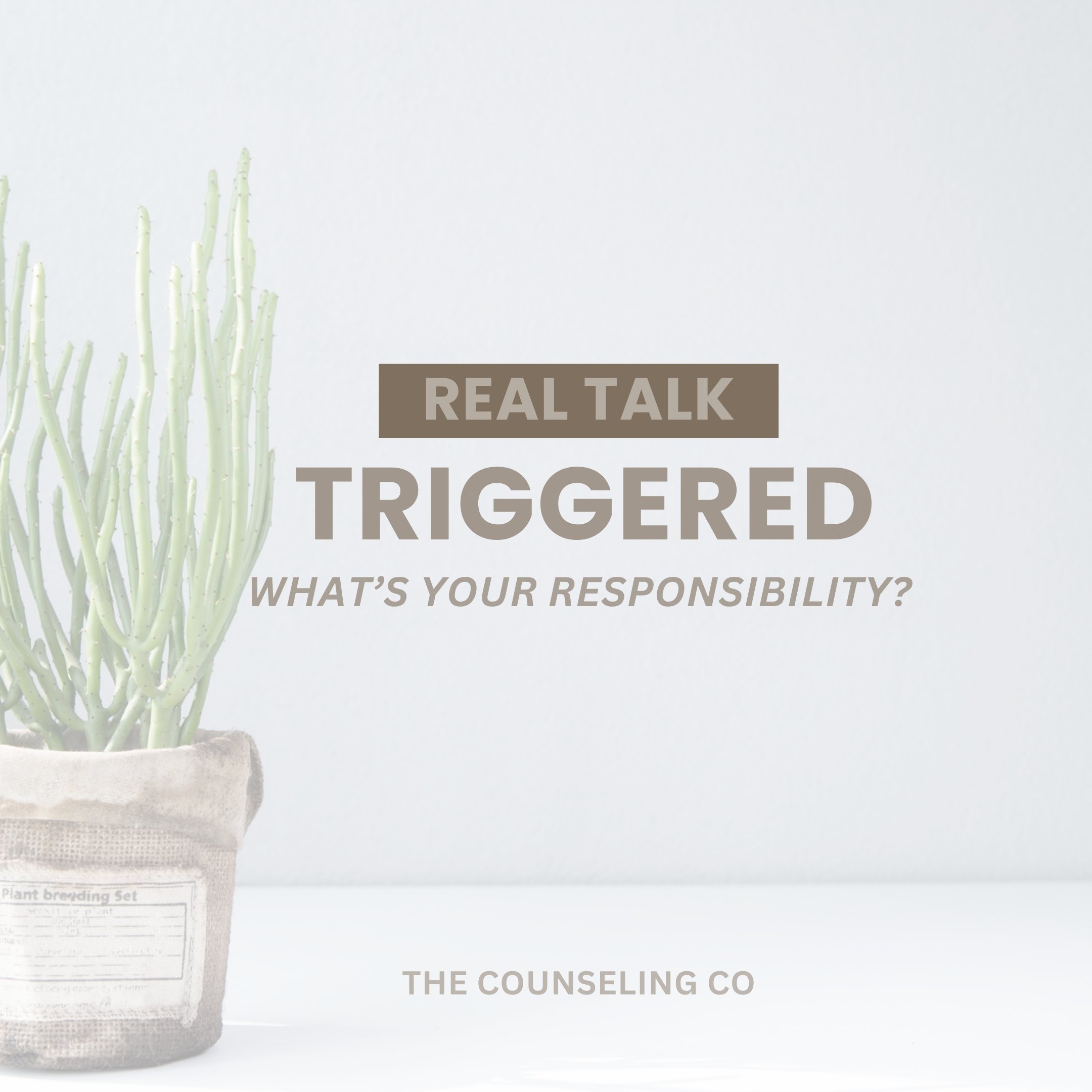
So, You’re Triggered… Now What?
Alright ladies, let’s get honest about what it means to be “triggered,” and how to take responsibility for what that means! There has been a lot of conversation on different social media platforms about what it means to be triggered, but there seems to be a gap in the conversation on what to do when it happens. Let’s try to debunk some myths around being triggered, and get focused on what is, isn’t, and our responsibilities in those moments.
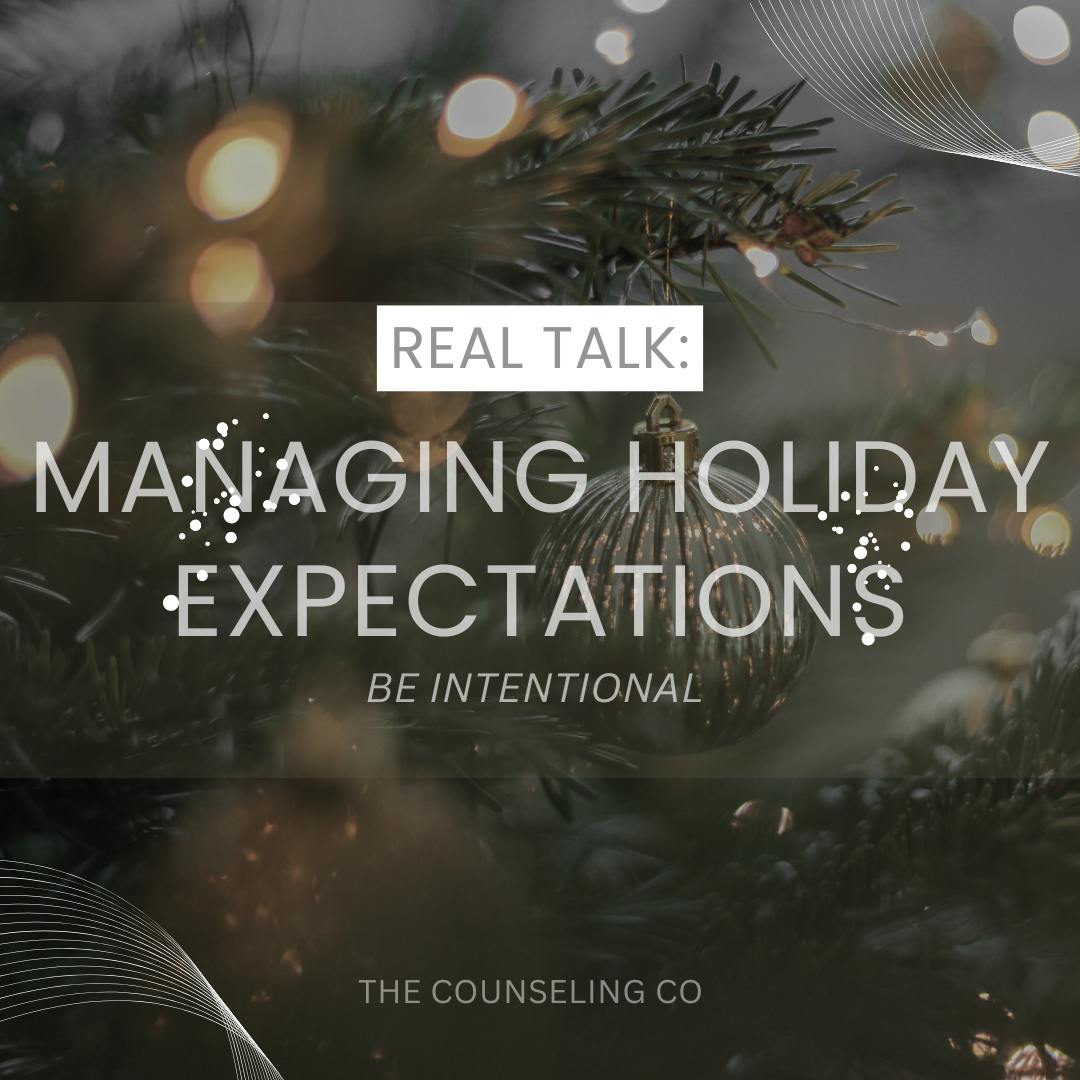
Managing Holiday Expectations
It’s the most wonderful time of the year! Each year I look forward to the twinkling lights, the quiet from the snow and time with my favorite people. However, as each year passes it feels there is more and more (..and more) to coordinate. I spend so much time looking forward to the holiday season, that I often feel disappointment when I’m met with the chaos, stress and anxiousness about getting it all done. This is not what this time of year should feel like. I wonder if this is a familiar feeling for you too.
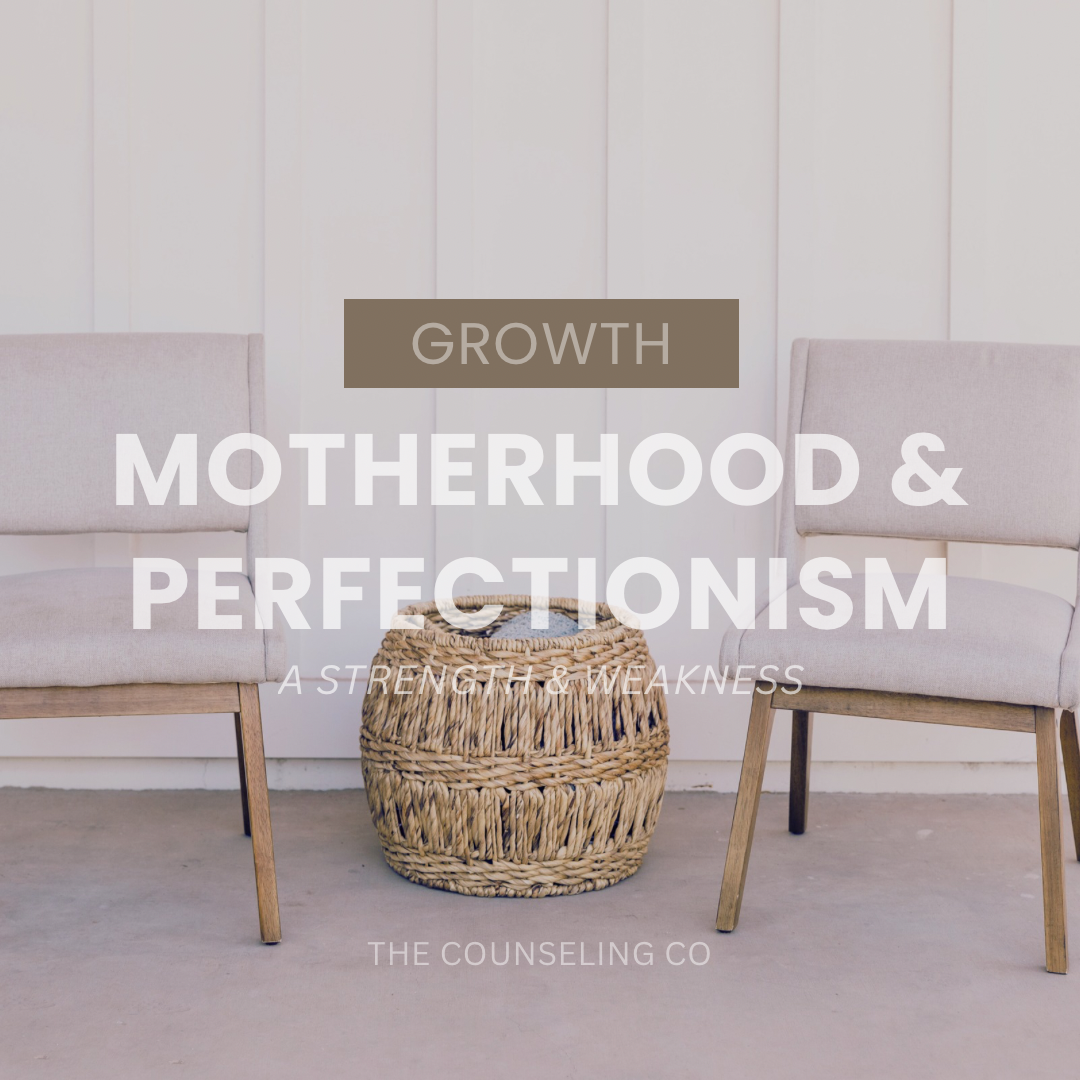
How Motherhood Can Challenge the “Perfectionist” Mentality
In my work as a therapist specializing in perinatal mental health, I support women with the transition into motherhood every day. When we enter any new season in life, we form expectations about what that season will look like. Within those expectations, we also form expectations for how we will navigate that season – often without even realizing it. The expectations we form then shape the way we experience that season, sometimes bringing with it feelings of disappointment, resentment, or even failure. If you are someone who identifies themselves as a “perfectionist,” “Type A personality,” or “high achiever,” keep reading to see how that might show up in your role as a mama.
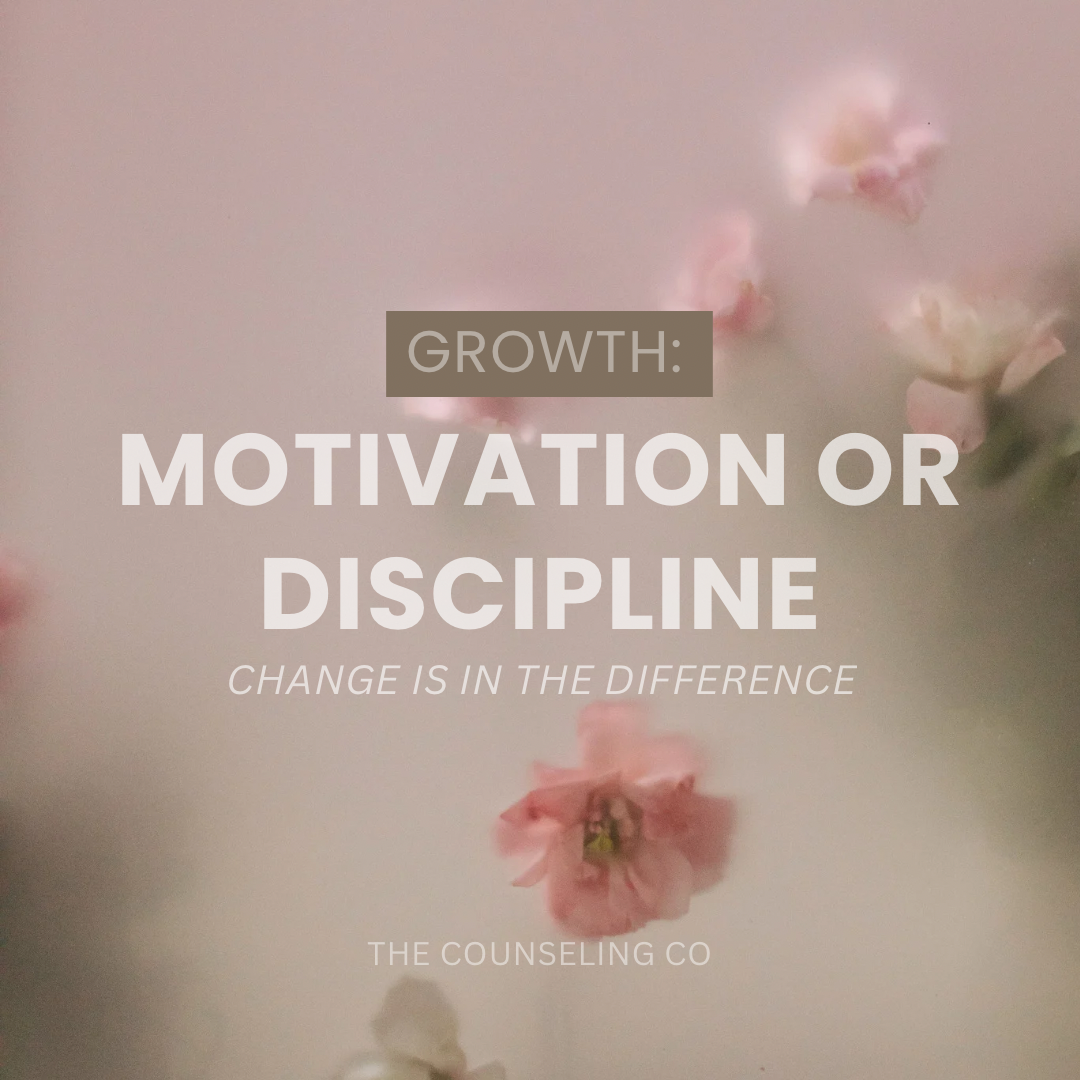
Let’s Talk: Motivation vs Discipline
To simplify it, motivation is the “why” while discipline is the “what”. Motivation gives us the initial push toward a new goal, while discipline is the action that allows one to truly follow through on their goal. The tricky part is, we often give motivation too much attention and power, when motivation is the piece which is fleeting. You may find yourself making comments like “I just need to find more motivation,” or “I’m not feeling very motivated today,” but lacking motivation is rarely the issue. It’s often a lack of understanding the ways we work against ourselves, and a lack of putting disciplines in place in order to effectively combat these barriers. Motivation is a key component of change, as it is the desire behind our change, but that desire only gets us so far. Desire shows up when we first decide we want to make the change, when we experience a sense of instant gratification, or when the stars align and our external circumstances fall in our favor. But what happens when we want to make a long term change? The gratification is often delayed, our circumstances shift day by day, and we may not have the same excitement we did the day we decided change was necessary. This is where discipline takes over.
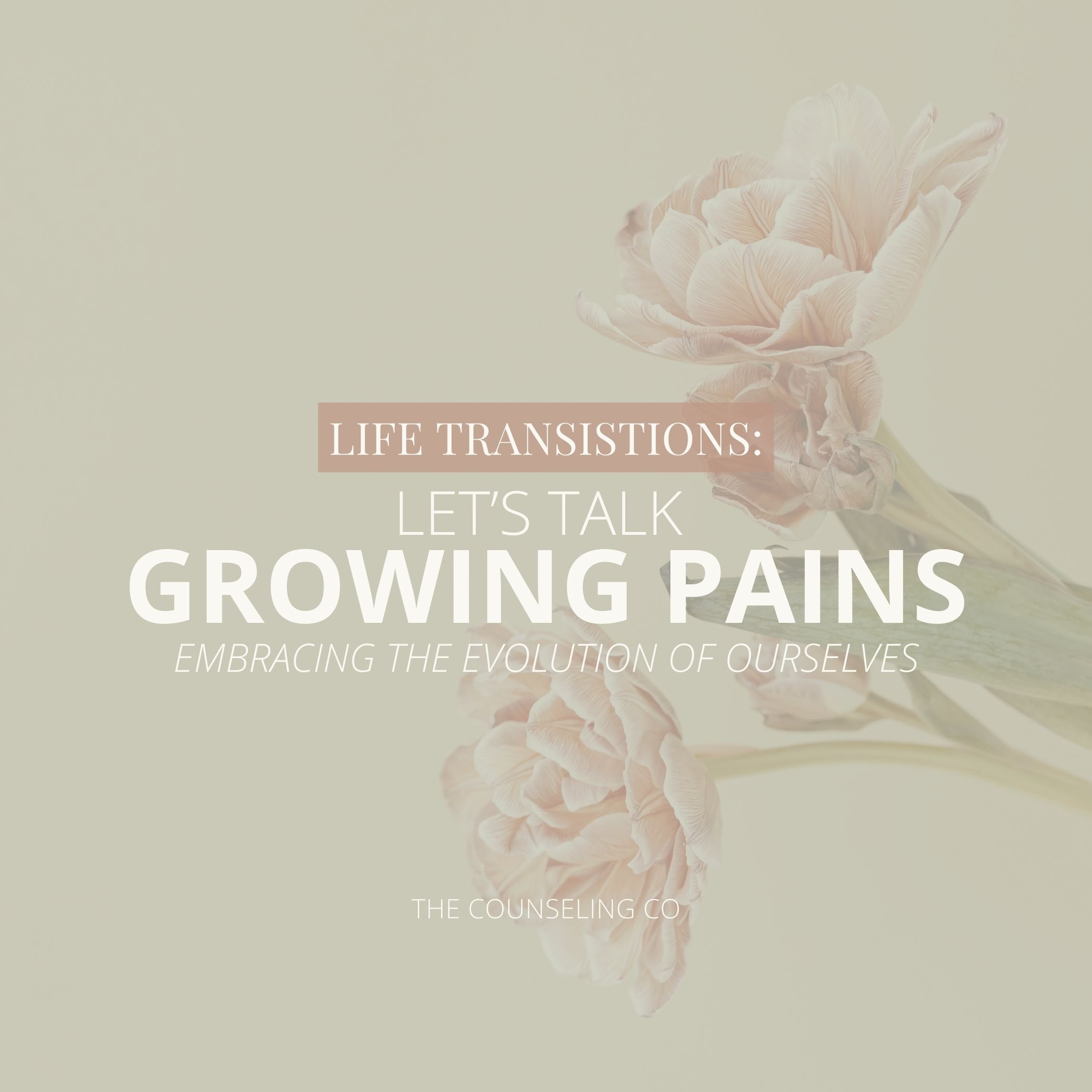
LET’S TALK: GROWING PAINS
To tolerate discomfort, we must first acknowledge and accept it. We cannot tolerate something we do not allow space for. The push to grow often comes with a discomfort we start to feel within our current situation. The challenging part is, that some types of discomfort feel familiar, making them more tolerable to sit with, while new discomfort may be experienced as more alarming. This makes sense considering we have yet to learn how to tolerate this new way of being. Discomfort can present itself in many different ways. A friendship becoming more distant. An increase in conflicting conversations. The urge to “go back to your default”. Less desire to engage in activities you once enjoyed. Push back from those around you. This list is not to excuse others’ behaviors, or ignore the difficulty of doing something new, but to normalize some of the challenges which may come with a season of growth. When we are aware of what to look for, we have the opportunity to label it, address it, and continue moving forward from there.
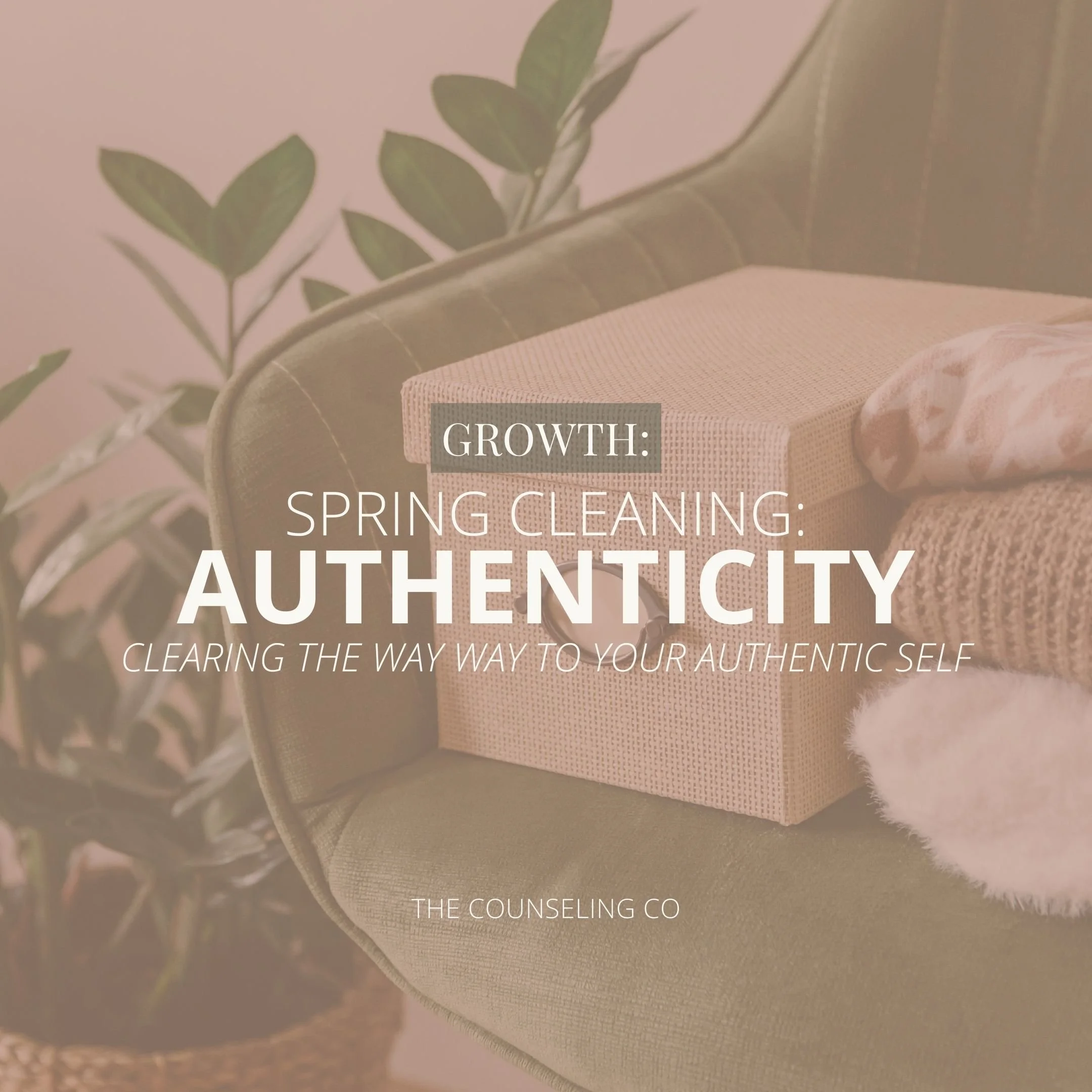
Spring Cleaning: Clearing the Way for Your Authentic Self
Spring has finally arrived, and I don’t know about you, but I am excited about the warmer weather, the beautiful flowers, and the ability to start getting outside more! It’s been something that I’ve been looking forward to for some time. One thing that is synonymous with spring is spring cleaning. It can feel so good to reset yourself for spring– swap out those winter clothes for spring/summer clothes, get the house clean from top to bottom, and start on any home projects that you have been putting off through the winter. Now, what if I told you that there is a whole other aspect of spring cleaning that you likely do not have on your radar? That thing is YOU!
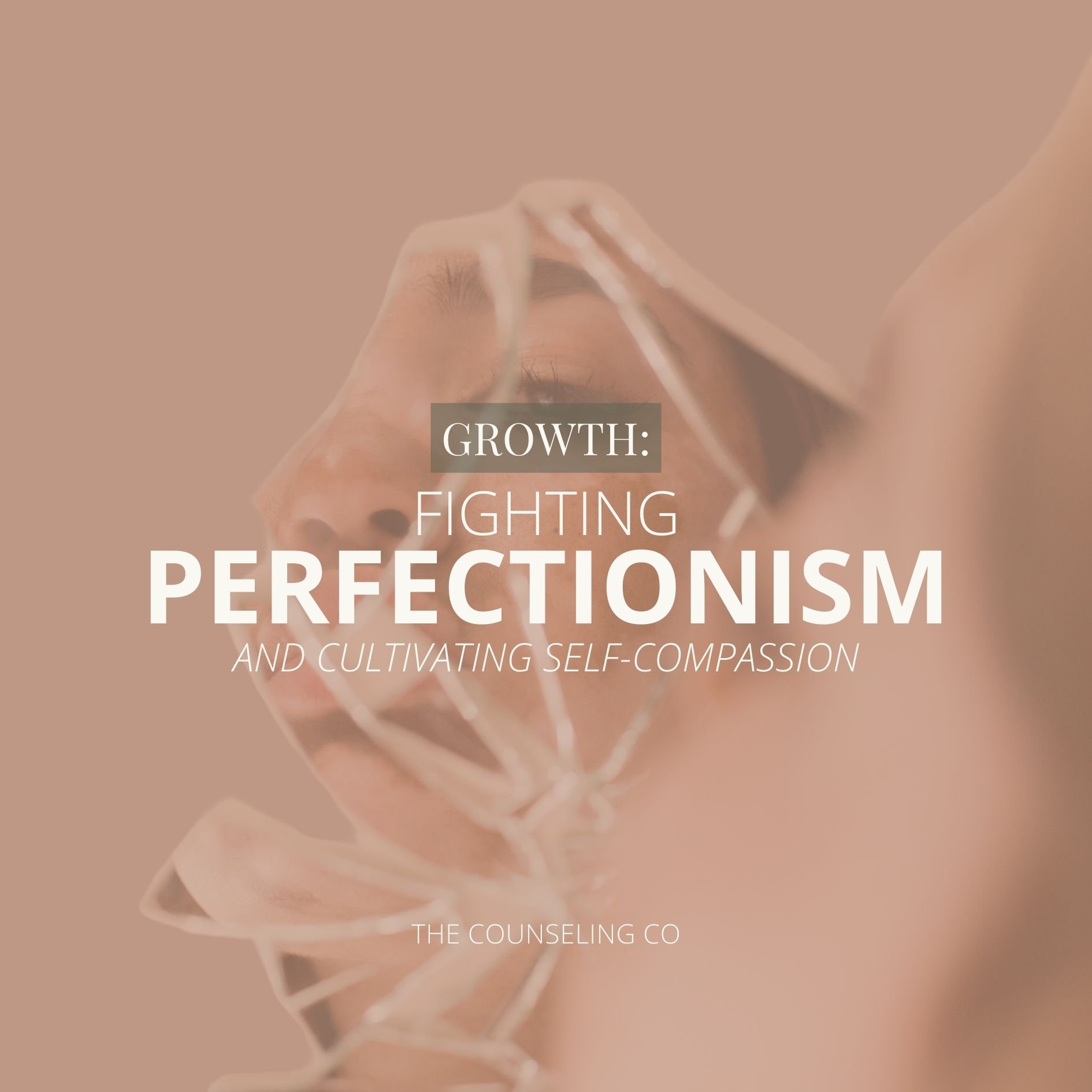
Fighting Perfectionism
Perfectionism is often praised and rewarded and therefore reinforced throughout many areas of our lives. However, the number one question is: Is perfectionism working for us or is it actually working against us?
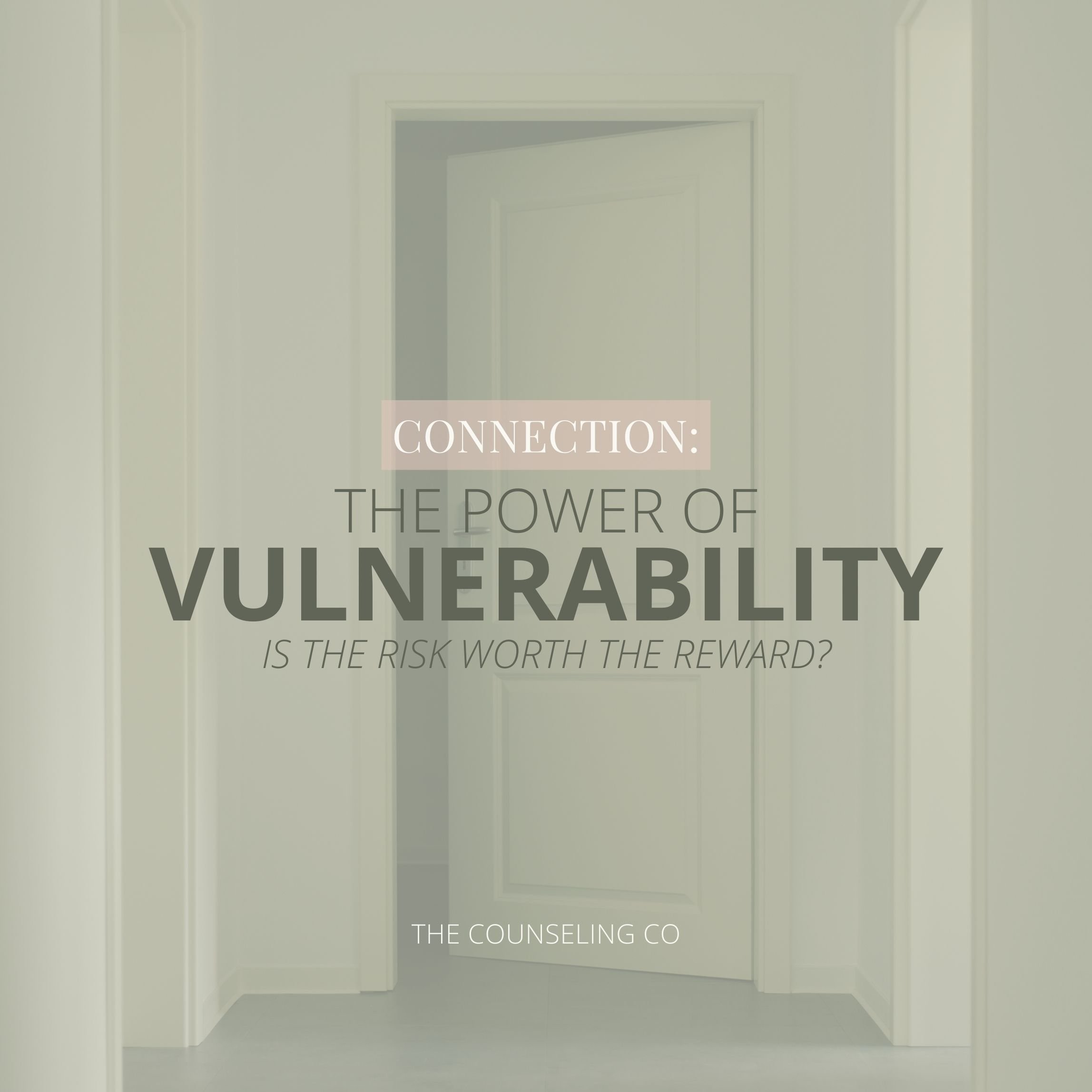
Is the risk worth the reward? Uncovering the benefits of vulnerability.
Vulnerability is the gateway to connection, trust, intimacy, personal growth, overcoming shame, fear and so much more. While we often are aware of what we stand to gain, we aren’t always aware of how to actually do it. How do we listen to what our body is saying, while simultaneously attempting to overcome these instructions? This is why vulnerability feels so risky and, I would argue, why vulnerability feels so complicated. The risk is the potential of losing control over our intimate information, while the complication is the process of learning to deny our own intuition.
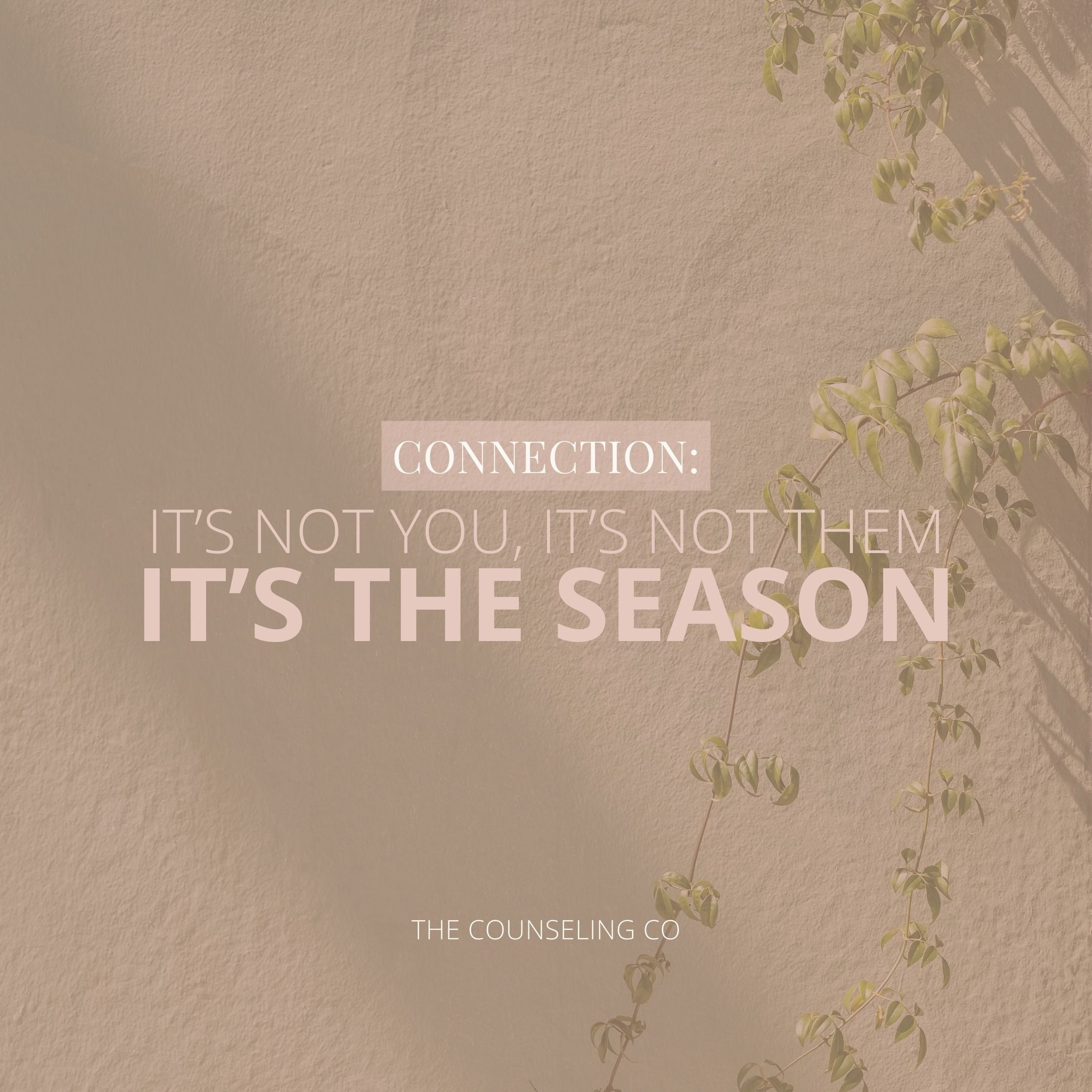
It’s not you. It’s not them, It's the season.
At some point in your life you will probably experience a season of disconnection or loneliness. Getting older comes with different seasons in life which may impact your schedule, priorities, needs, energy, mental health and more. This ultimately affects our relationships and how they shift over time. It’s common with the changes to feel isolated, lonely, envious, or even rejected.
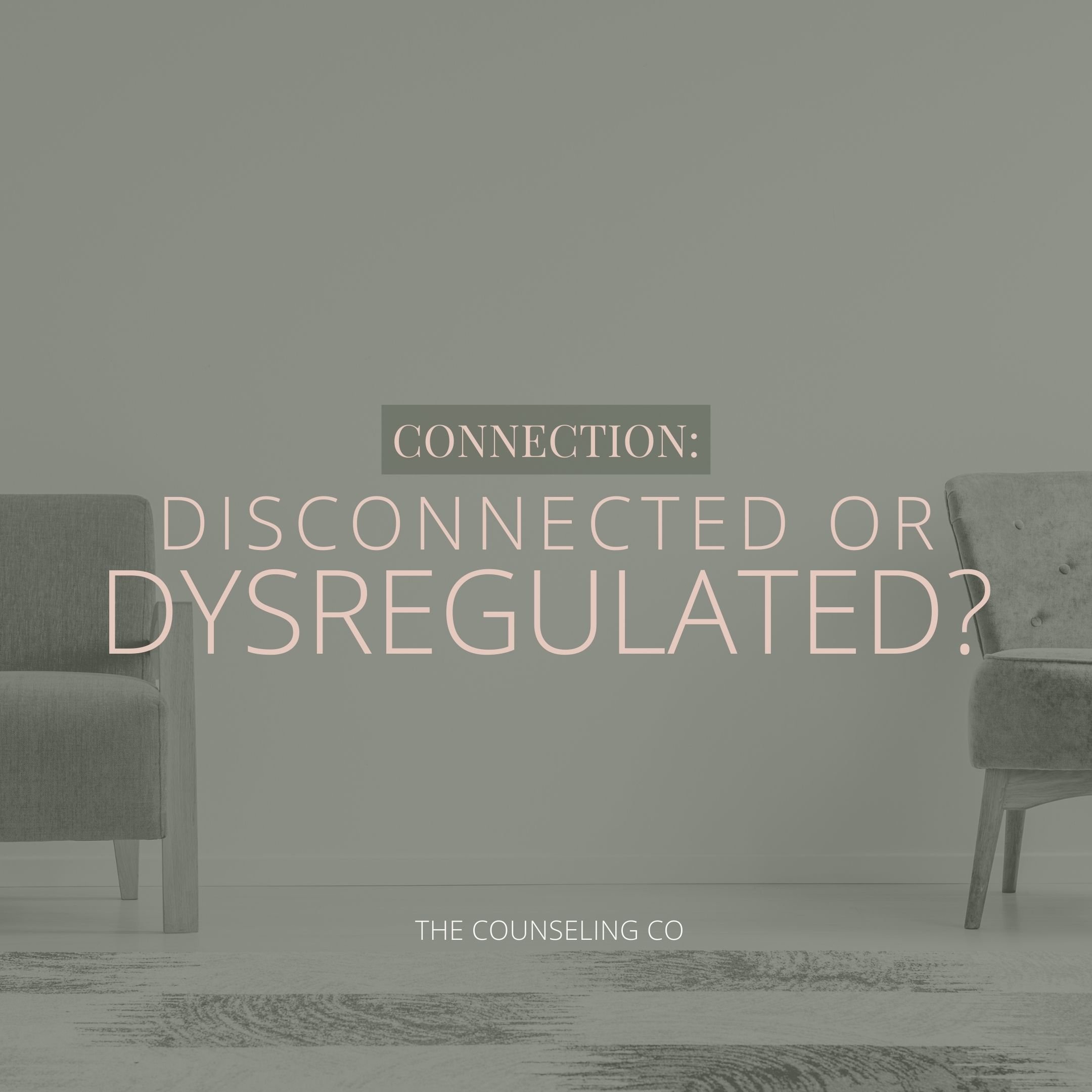
Disconnected or Dysregulated?
Well, we made it! We made it to the other side of the holidays, we've kicked off the new year, and we are headed toward spring and all the new things that it brings. Now is the time when "things should have slowed down..." but have you noticed that life doesn't feel easier despite making it to "the other side"? Maybe you've been asking yourself, "Why am I feeling so disconnected from the people in my life?" or "How do I reconnect with the relationships that are important to me?" If you've been feeling disconnected from others lately, let's talk about the difference between disconnection and dysregulation. You may be surprised to learn what the culprit may be, and how to make intentional changes for your current situation.
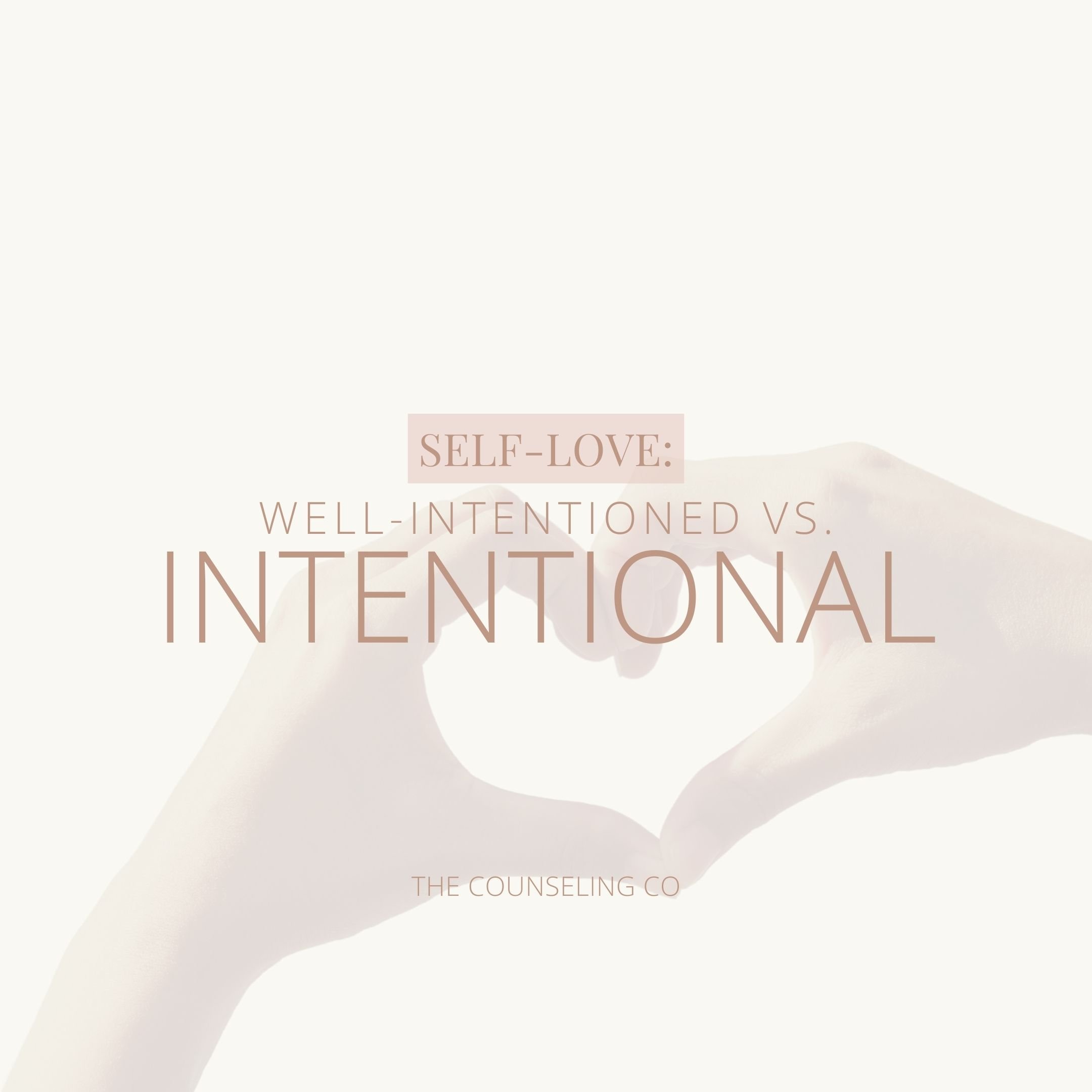
Turning Well-Intentioned Self Love into Intentional Self Love
The concept of self-love has wildly evolved. This phrase can be viewed as honoring your emotions, avoiding conflict, taking care of your health, putting your needs above others, treating yourself any chance you get, etc. None of these are inherently good or bad, but I want to focus on an overall balance of the concept. Webster’s Dictionary has multiple definitions for the phrase, but the one that resonates with me most is, “proper regard for, and attention to, one's well-being.” To truly focus on true, overall well-being, will require discomfort at times, and possibly making shifts in various areas. Now, let’s dig into what this looks like and how self-love can become a more regular and balanced practice in your life.
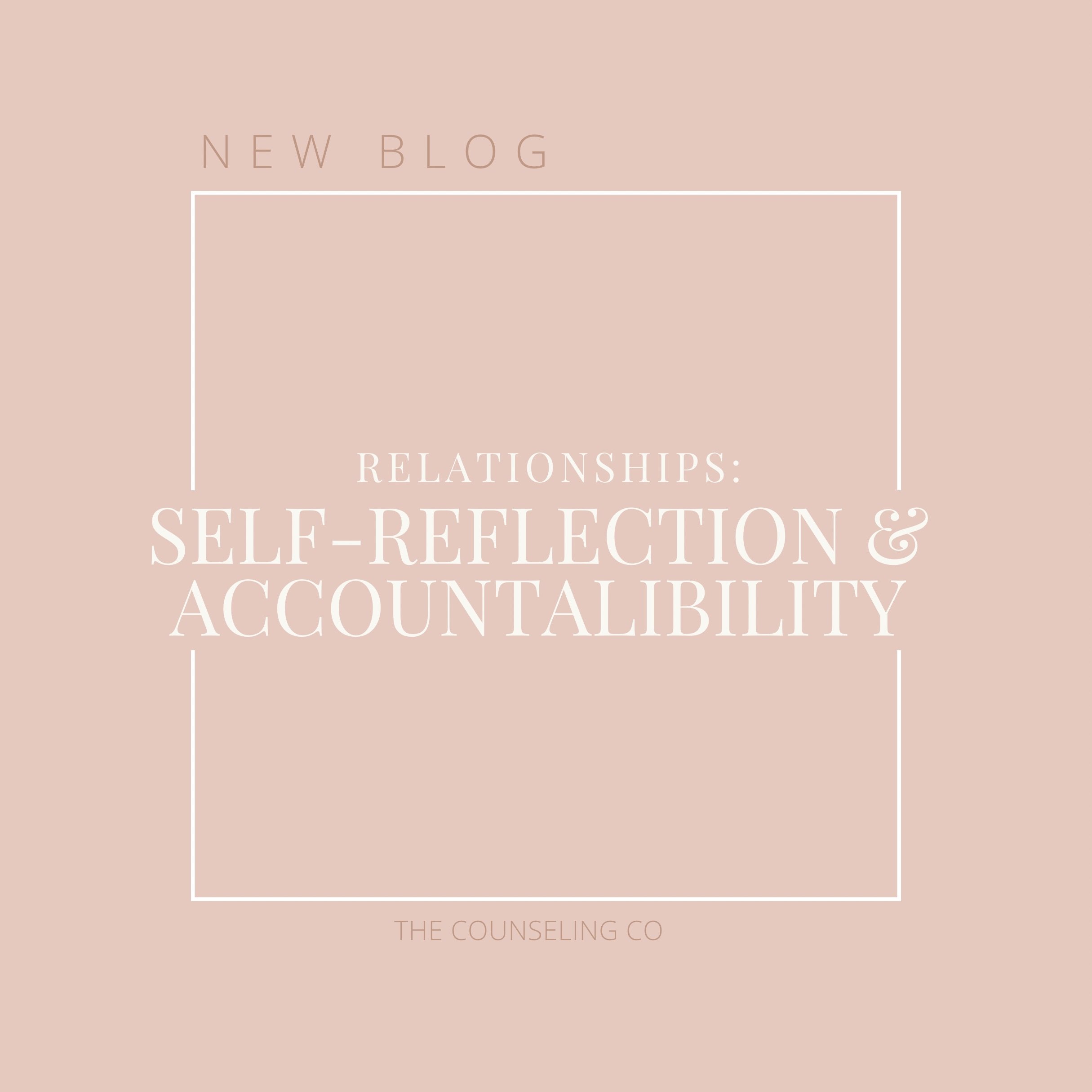
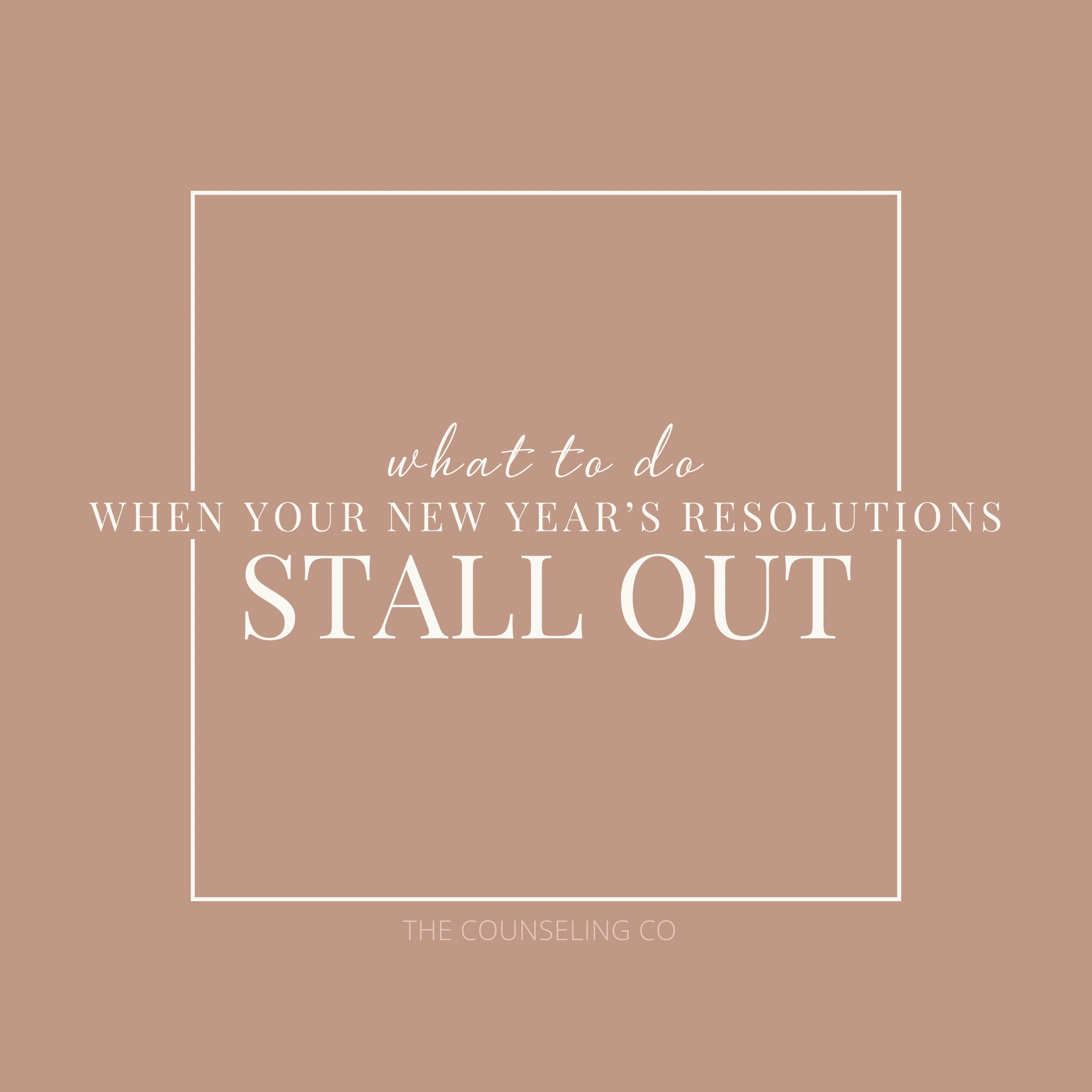
What To Do When Your New Year’s Resolutions Stall Out: A Guide to Sustainable Personal Growth
While we all have goals that motivate us throughout the year, the start of the year especially feels like a time where we have the most goals or expectations for ourselves. Maybe this is because we have a brand new year in front of us, or because everyone else seems to be doing it…However, regardless of the reason, we have all found ourselves at some point thinking through what the next 365 days ahead of us should be filled with.

Living Aligned With Your Values
The power of being aware of your true values that are genuinely your own, means you can change behaviors that currently don’t serve you or others well and you can create a lifestyle of intentionality, authenticity, freedom, and confidence.
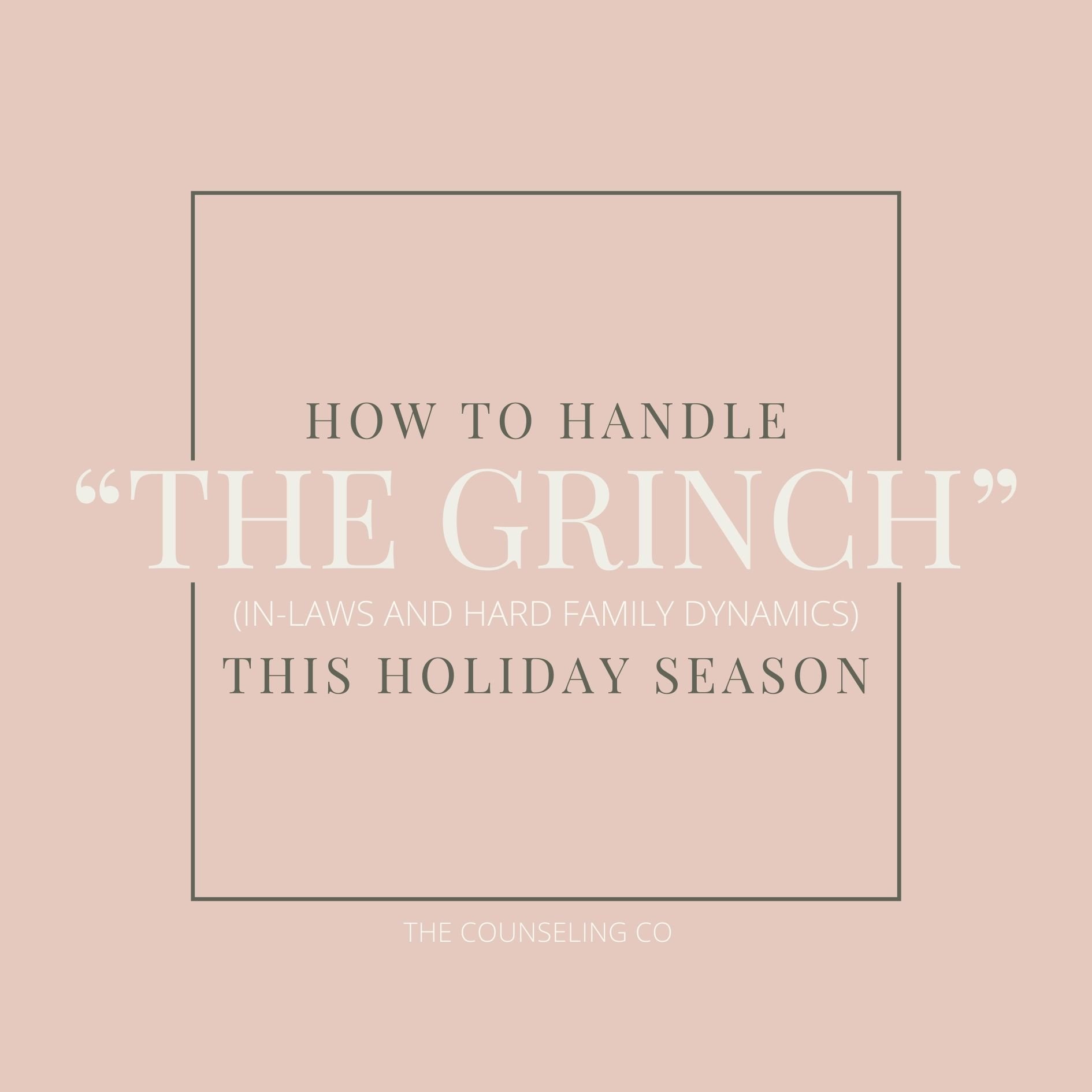
Handling Holiday Dynamics with In-Laws & Family
The holiday season is often seen as a joyous time filled with laughter and connection with special people in our life. The hard part is this-- we don't always talk about when our relationships and dynamics don't mimic that "picture-perfect" ideal. The holidays can magnify relationship struggles that are present during the rest of the year, and it can feel incredibly vulnerable if the dynamic isn't fitting that ideal. So, what do we do to try and manage this? How do we come to a place of acceptance of the current reality we are experiencing within our relationships? Let's break down a few things to consider when finding the balance between acceptance and boundaries.

How to Set Holiday Boundaries
Boundaries can be quite the touchy topic, especially around the holidays. Do I just suck it up and drag everyone to and from every planned event? Am I being overly needy or difficult by having and setting these boundaries? Are my needs really worth it if everyone else is satisfied? These are just a few of the questions that may run through your mind when it comes to holiday planning and family time; making a time of year we hope to experience in a positive light, not so enjoyable. So, with that in mind, I thought I would share a few thoughts and tips when it comes to identifying and setting boundaries, specifically during the holiday season!
